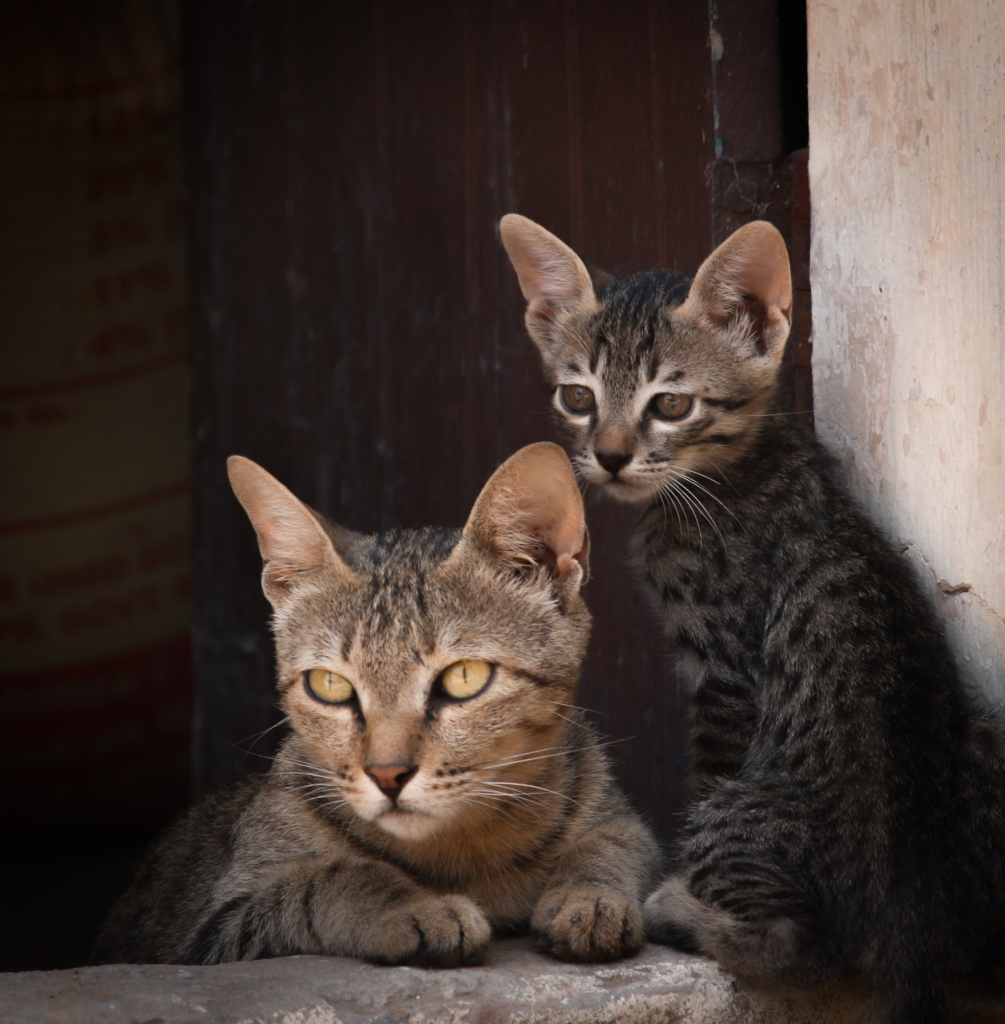When can kittens eat adult food? As many cat owners do, it’s important to understand the importance of providing your feline companion with proper nutrition at every stage of their life. Whether it’s a playful and curious kitten or a graceful and independent adult cat, a balanced diet is vital in promoting their overall health and development. What kittens eat is the cornerstone of a cat’s overall well-being.
Kittens especially require a balanced diet as they grow and develop. A well-nourished kitten is more likely to have stronger bones, healthier muscles, and improved cognitive function. By prioritizing their nutritional needs, you can ensure that your beloved cat leads happy, healthy, and vibrant lives.
Table of Contents
The Basics of Kitten Nutrition
During this crucial stage of their lives, the nutrients a kitten receives play a significant role in shaping their overall well-being. A balanced diet provides the necessary fuel for their rapidly growing bodies, ensuring strong bones, muscles, and organs. Adequate nutrition also supports cognitive development and a robust immune system. As responsible cat owners, it is our duty to understand the basics of a cat’s diet and provide them with high-quality cat food they can eat that meets their specific needs.
Your Kitten’s Key Nutritional Needs
Protein
Protein plays a vital role in supporting muscle development in kittens. It serves as the building blocks for muscles and helps them grow strong and healthy. The amino acids found in protein are also essential for various bodily functions, including tissue repair, enzyme production, and hormone synthesis. High-quality protein sources such as lean meats, poultry, and fish provide the necessary amino acids that kittens need for optimal growth and development.
Fat
Fat is another important nutrient that plays a crucial role in a kitten’s diet. It serves as a concentrated source of energy and provides fuel for their active lifestyle and growth. Additionally, fat is essential for cognitive development, as it supports the development of the nervous system and brain. Kittens require a moderate amount of healthy fats in their diet to ensure optimal energy levels and brain function. Sources of essential fatty acids, such as fish oil or chicken fat, can provide the necessary fats for nutritional requirements.
Vitamins and Minerals
Vitamins and minerals are essential for kittens’ overall health and well-being. They play a crucial role in various bodily functions, including immune system support, bone development, brain and vision development, and proper organ function. Kittens require a balanced intake of vitamins and minerals to meet their specific needs. Some essential vitamins for kittens include vitamin A, vitamin D, and vitamin E. Important minerals include calcium, phosphorus, and iron. These nutrients can be obtained through a balanced and varied diet or with the guidance of a veterinarian to ensure they receive optimal nutrition.
When and How Much Should You Feed Your Kitten
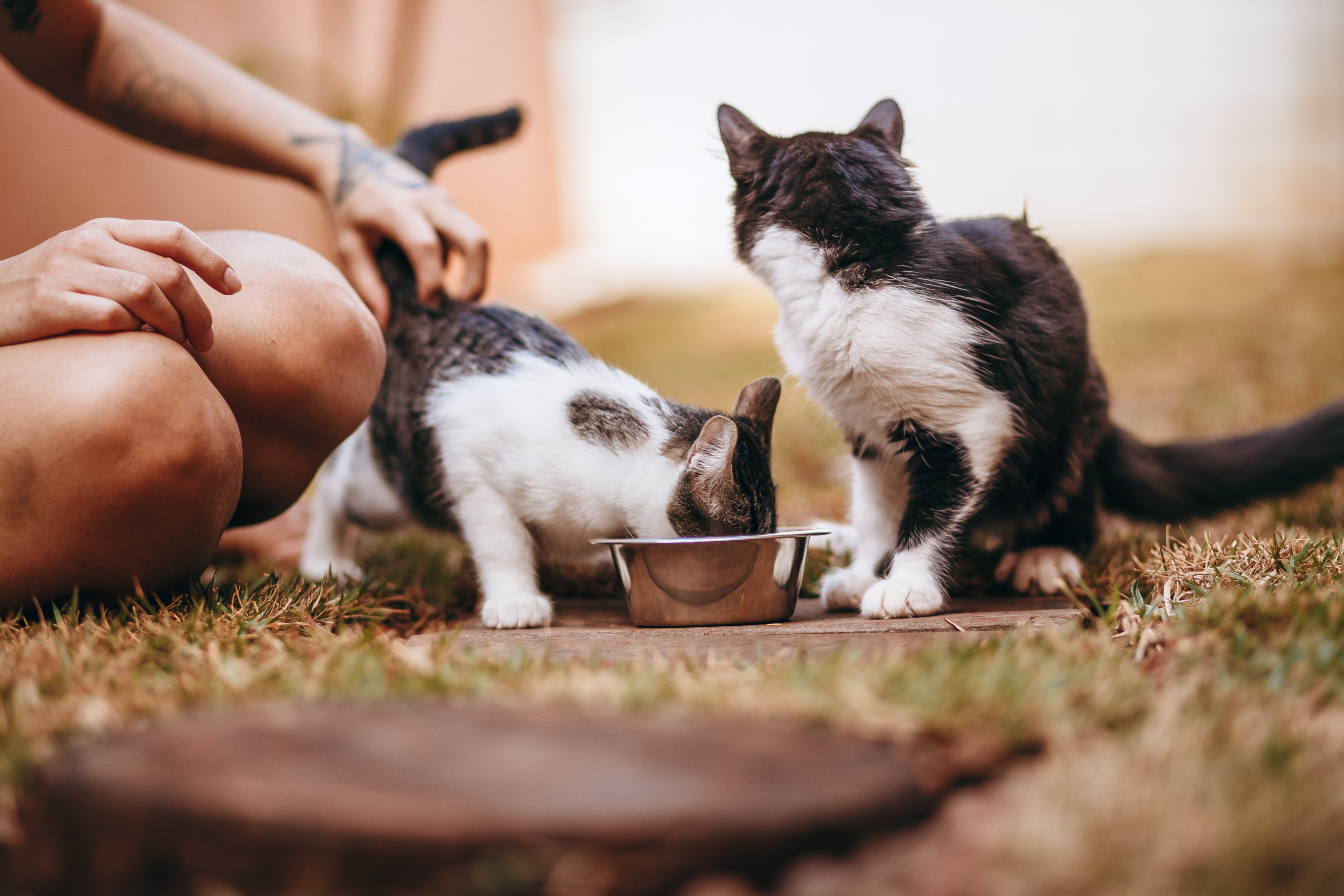
It is essential to establish a recommended feeding schedule for kittens to ensure they receive regular meals throughout the day. Kittens require frequent feeding due to their fast metabolism and small stomach capacity. Generally, it is advisable for them to eat four to five small meals a day. This helps maintain their energy levels and prevents them from becoming overly hungry or overeating at any given meal.
Feeding your kitten the right amount also plays a crucial role in preventing overfeeding and maintaining a healthy weight. It is important to understand that kittens have specific dietary needs and should not be given unlimited access to food. Guidelines for determining appropriate portion sizes can vary depending on factors such as the kitten’s age, weight, and individual metabolism. Remember, every kitten’s food amount is unique, so it is crucial to observe their individual needs and make adjustments accordingly to support their growth and development.
Can Kittens Eat Adult Cat Food?
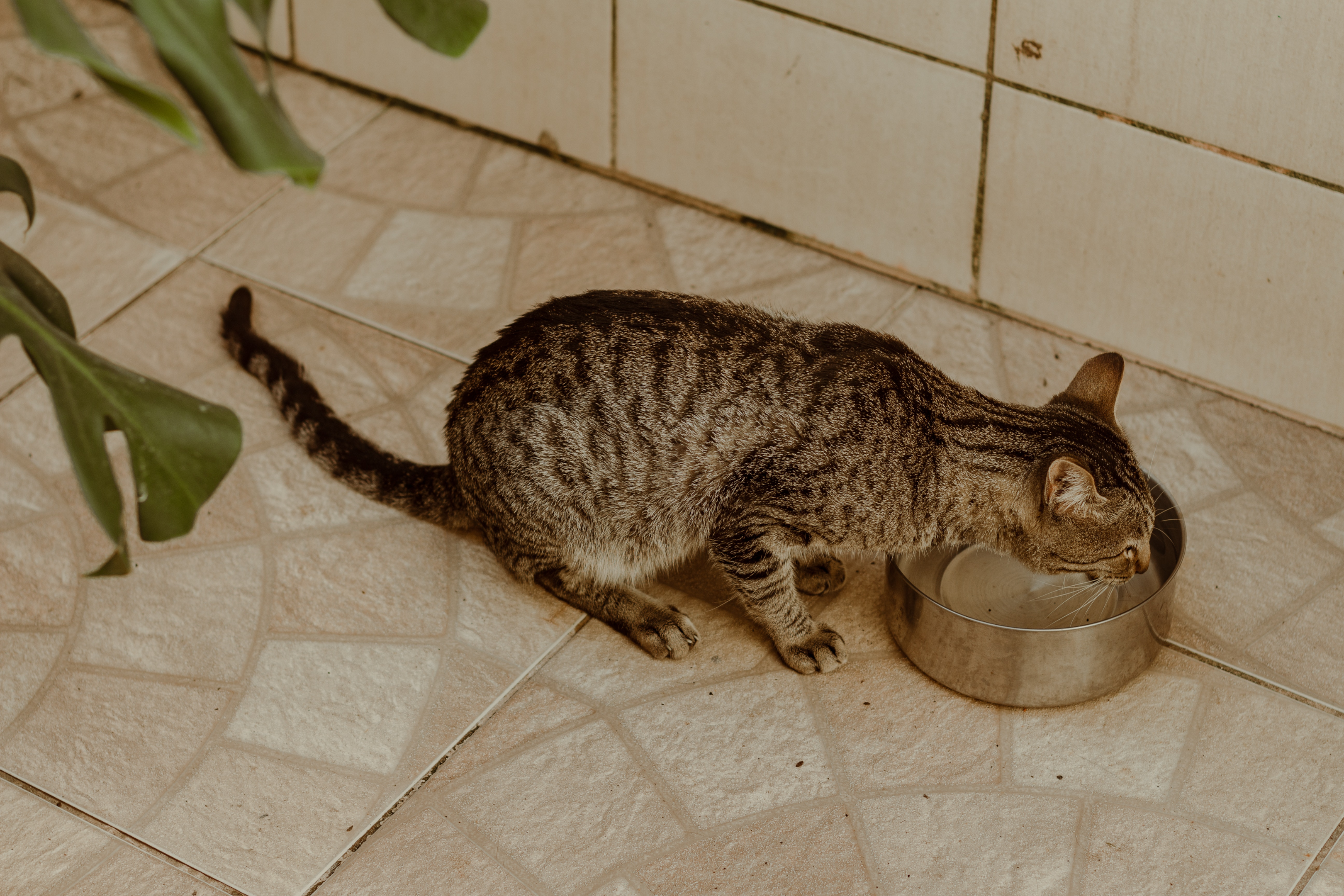
It may be tempting to simply feed both your kittens and adult cats with the same food. However, it’s important to understand that kittens have unique nutritional needs during their early stages of growth and development. Kittens require a diet that is specifically formulated to support their rapid growth, provide essential nutrients, and cater to their higher energy requirements.
The Difference Between Kitten and Adult Cat Food
Adult cat food is not suitable for kittens. Kittens need higher levels of protein and fat to support their growing muscles, bones, and organs. They also require more vitamins and minerals for their developing immune system and cognitive function.
Additionally, kittens have smaller stomachs and higher metabolic rates than adult cats. Their digestive systems are better equipped to handle smaller, more frequent meals.
If you have multiple cats in your household, including adult cats and kittens, it is best to separate their feeding areas and provide each with their appropriate food. This way, you can ensure that all cats receive the specific nutrients they require at different life stages.
The Consequences of Wrong Kitten Food Choices
Feeding your kittens with adult cat food may lead to overeating or nutrient deficiencies and impact their growth and overall well-being. Adult cat food may have lower levels of protein, which can lead to insufficient muscle development and compromised overall growth. Insufficient fat intake from an adult diet of cat food can hinder cognitive function and impact the kitten’s ability to learn and adapt. Inadequate amounts of these vitamins and minerals from adult cat food can lead to skeletal abnormalities and dental problems.
To ensure the proper growth and development of kittens, it is crucial to provide them with a kitten-specific diet. Well-balanced kitten food is specially formulated to meet their nutritional needs, including higher protein and fat content, appropriate vitamins and minerals, and smaller, more digestible kibble sizes.
How to Choose Good Kitten Food
The right kitten formula for your furry friend is crucial for their growth and development. By choosing good food, you’re meeting your kitten’s specific nutritional requirements to support their rapid growth and development. It not only promotes better digestive health but can help maintain healthy skin and a shiny coat. Providing your kitten with the right nutrition from the start is an investment in their health and happiness.
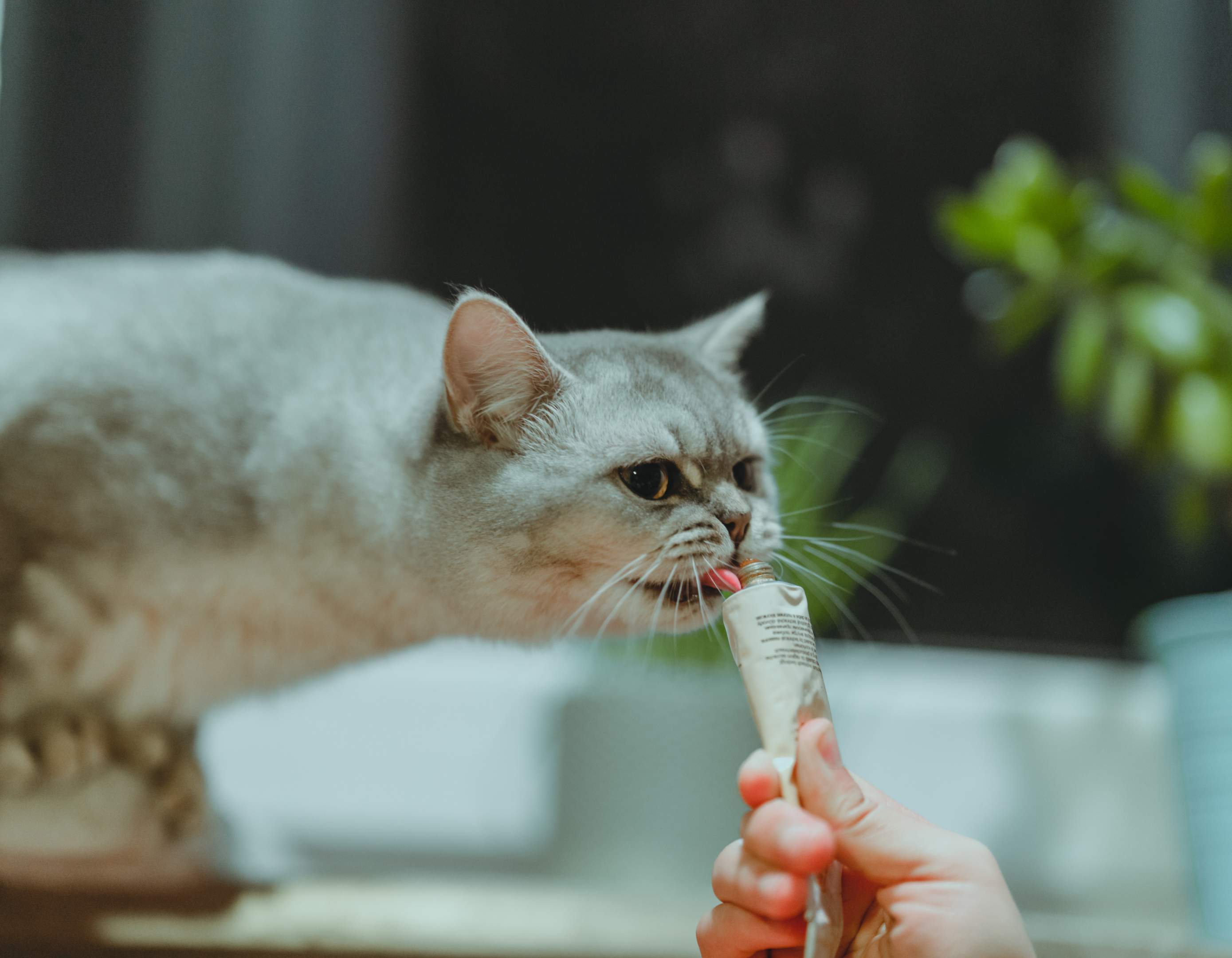
Meeting Nutritional Requirements
Look for kitten-specific food that is designed to meet the unique nutritional needs of growing kittens. These formulas are specially balanced with essential nutrients like protein, fats, vitamins, and minerals to support their development.
Ensure that the kitten food you choose is labeled as “complete and balanced.” This means it provides all the necessary nutrients in the right proportions to support your kitten’s growth and well-being. Look for certifications from reputable organizations, such as the Association of American Feed Control Officials (AAFCO), to ensure the kitten food meets recognized industry standards.
Some kittens may have unique dietary requirements or sensitivities to new food. If your kitten has any allergies, digestive issues, or specific health conditions, consult with your veterinarian to determine the best kitten food options. They can provide guidance on suitable diets, including hypoallergenic or prescription formulas if needed.
Good Ingredients for Good Health
Check the ingredient list on the kitten food packaging. Look for high-quality protein sources, such as chicken or fish, listed at the top of the ingredients. it’s also important to include wholesome grains and carbohydrates in their diet. Look for ingredients like brown rice, quinoa, or sweet potatoes, which provide the necessary energy and fiber.
High-quality kitten food uses natural ingredients and avoids artificial additives, preservatives, colors, and flavors. Natural ingredients are minimally processed and provide a healthier and more nutritious option for your kitten. Avoid kitten food that contains fillers, by-products, artificial preservatives, or excessive amounts of grains as they offer little nutritional value and may be difficult for kittens to digest.
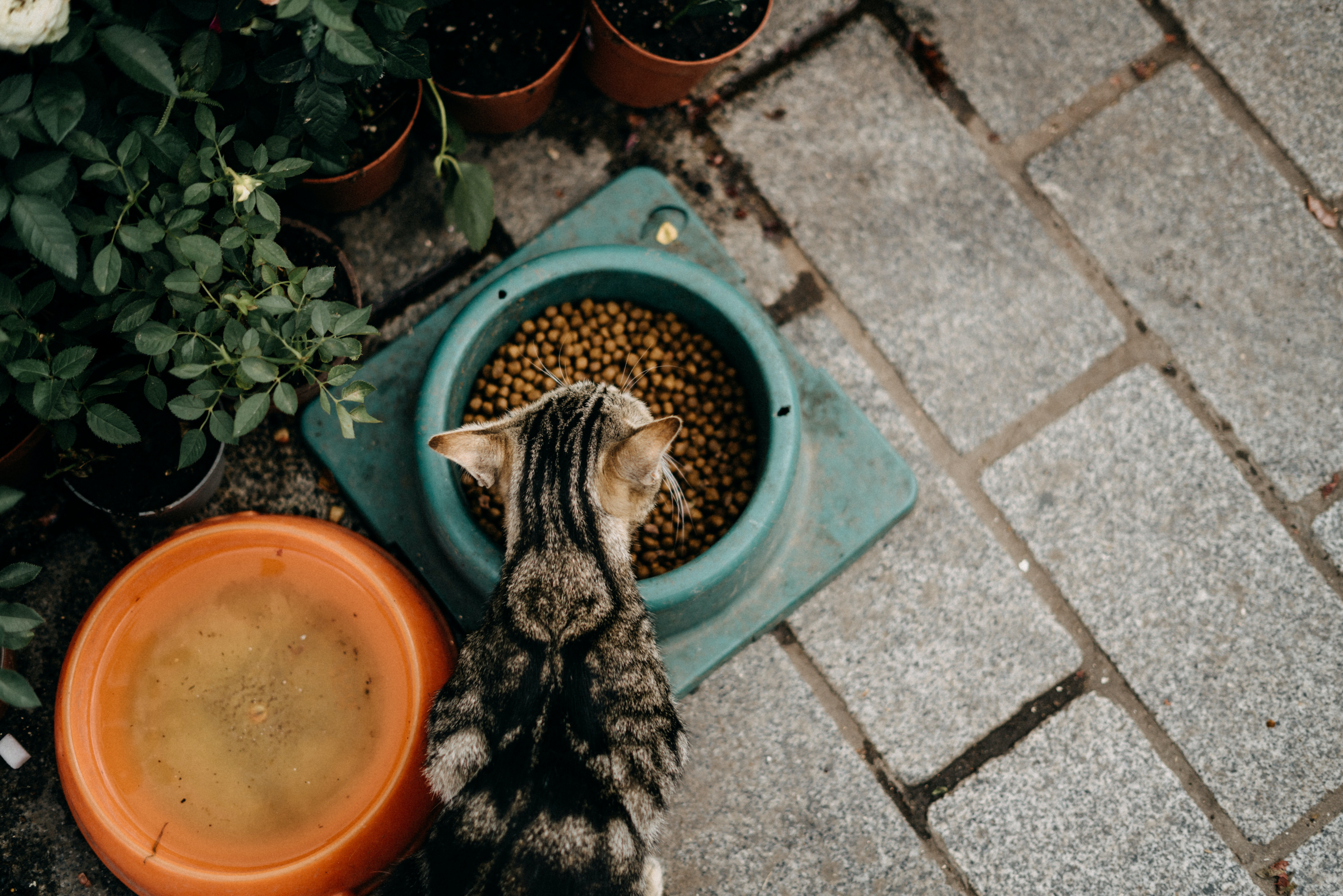
Choosing Between Wet Kitten Food and Dry Kitten Food
When it comes to choosing between wet and dry kitten food, both options have their advantages. Wet food, also known as canned food, contains a higher moisture content compared to dry food. This helps in ensuring that your kittens stay hydrated. Additionally, this can make it easier for kittens to chew and digest. Wet food also tends to have a stronger aroma and richer flavors, making it more appealing to kittens. Its smooth texture is also ideal for kittens who are transitioning from milk to solid food.
On the other hand, dry food, also known as kibble, is the more common option and has its own set of advantages. This type of kitten food helps promote dental health, strengthen your kitten’s jaw muscles, and keep their teeth clean. Dry food is also more convenient, cost-effective, and has a longer shelf life compared to wet food. Quality dry kitten food is also formulated to meet the nutritional needs of growing kittens.
When Can Kittens Eat Adult Food?
It’s important to understand the different life stages of a kitten as they grow into adult cats. Each stage comes with unique characteristics and nutritional requirements. As young kittens grow older, you’ll find that multiple shifts in their diet are necessary to ensure continuous balanced nutrition.
From Kitten to Adult Cats: A Kitten’s Life Stages
Understanding the life stages of a kitten into an adult cat helps you provide the appropriate care and support at each phase of their development. By addressing their unique requirements, you can ensure they lead a happy, healthy, and fulfilling life.
Neonatal Stage (0-2 weeks)
This is the newborn stage of a kitten’s life. During this time, they are completely dependent on their mother for nourishment and care. Their eyes and ears are closed, and they spend most of their time sleeping and nursing. It’s crucial to provide a warm and comfortable environment for them to thrive.
Transitional Stage (2-4 weeks)
Kittens begin to open their eyes and ears, and they start exploring their surroundings. They also start to wobble on their feet and may attempt to walk. At this stage, they can start transitioning from their mother’s milk to solid food. Introduce wet food mixed with kitten formula or water to make it easier for them to eat.
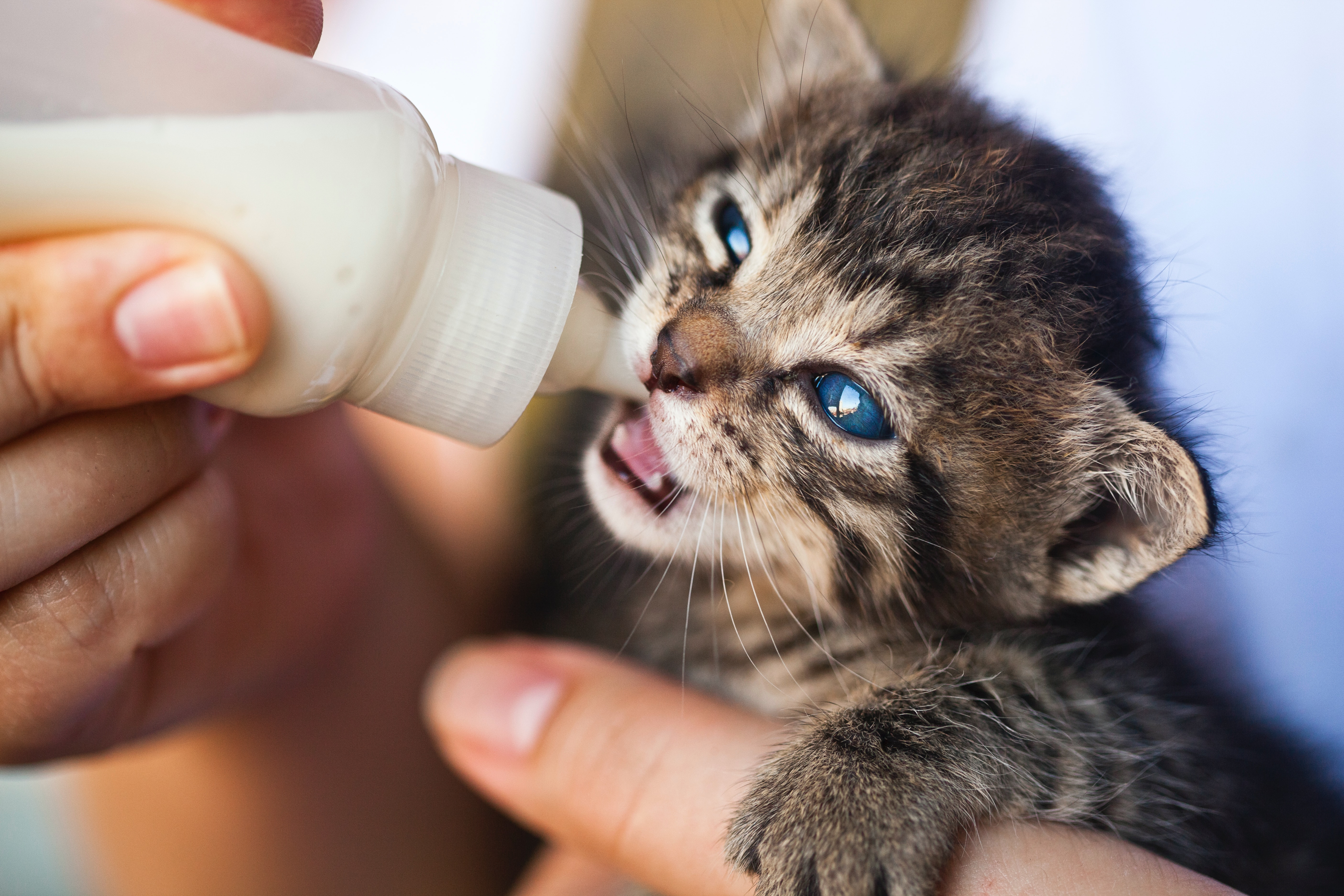
Socialization Stage (4-8 weeks)
During this stage, kittens become more active and curious. They develop their social skills through play and interaction with littermates and humans. It’s important to handle and socialize them gently, exposing them to different sights, sounds, and experiences. This helps them become well-adjusted and friendly adult cats.
Juvenile Stage (8 weeks – 6 months)
At this stage, kittens continue to grow rapidly and develop their coordination and physical abilities. They have bursts of energy and engage in playful behavior. It’s essential to provide them with stimulating toys and opportunities for exercise. Make sure that your kittens eat cat food that is high-quality to support their growth.
Adolescent Stage (6 months – 1 year)
Kittens are considered adolescents during this stage. They may experience hormonal changes and exhibit behaviors like increased independence and territorial marking. Continue feeding kittens a nutritious diet suitable for their age. Around the end of this stage, your kitten can start to eat adult cat food.
Young Adult Stage (1-3 years)
By this stage, cats have reached their full size and are no longer considered kittens. They are active, and energetic, and may still exhibit playful behavior. Provide them with regular exercise, mental stimulation, and a well-balanced diet formulated for adult cats. Regular veterinary check-ups and vaccinations are crucial during this stage.
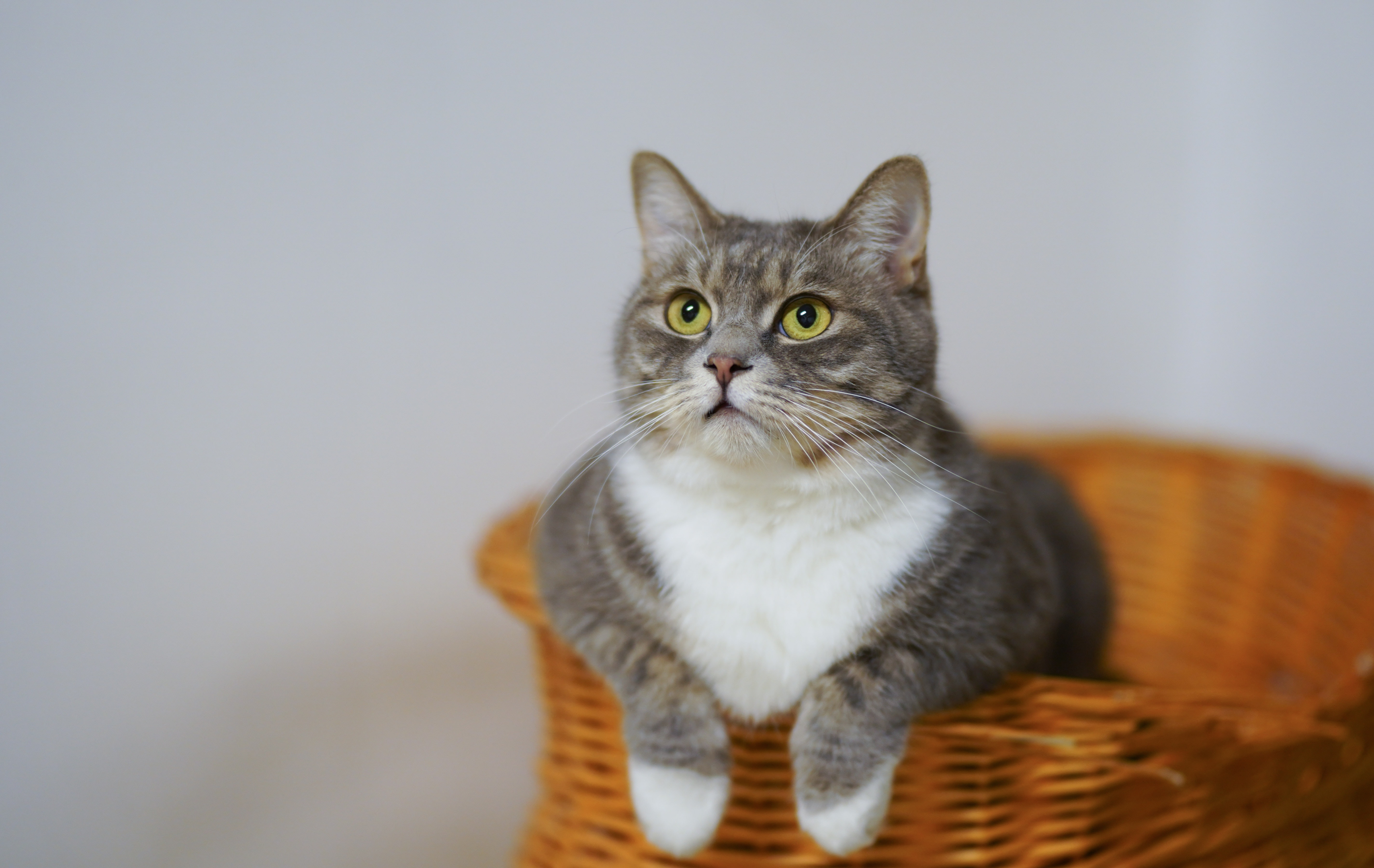
Adult Stage (3-7 years)
Adult cats have settled into their personalities and daily routines. They are typically more independent and less active compared to their younger years. It’s important to maintain a healthy weight through portion control and a balanced diet. Continue with regular veterinary visits for preventive care and to monitor any potential health issues.
Senior Stage (7+ years)
As cats enter their senior years, they may experience age-related changes such as decreased mobility, dental issues, or changes in appetite. Provide them with a comfortable and safe environment, regular veterinary check-ups, and a senior-formulated cat food diet to support their specific needs. Monitor their weight and address any age-related health concerns promptly.
Switching Your Growing Kitten to Adult Cat Food
While kittens have specific nutritional needs during their early stages of life, there comes a time when they are ready to make the switch to adult cat foods.
You can generally start transitioning them to adult cat food at around 9 to 12 months of age, although this may vary depending on their individual growth and development. This would be the stage in which cats are no longer considered kittens. However, it’s still best to consult with your veterinarian to determine the best time to make the switch based on your kitten’s specific needs.
How to Transition from Kitten to Adult Cat Food
Abruptly switching from kitten food to adult cat food can cause digestive upset. Instead, gradually transition by introducing the new food over a period of about 7-10 days. Begin by mixing a small amount of adult cat food with your kitten’s current food, gradually increasing the proportion of adult food each day until you have completely switched over.
Just as you did for kitten food, make sure your chosen adult cat food is high-quality, well-balanced, and nutritionally sufficient. Look for a formula that suits your cat’s specific needs, whether it’s based on age, activity level, or any health considerations they may have.
As your cat transitions from kitten food to adult cat food, it’s important to monitor their weight and overall health. Adjust the portion size of the new food accordingly to maintain a healthy body condition. Regular check-ups with your veterinarian will also help ensure that your cat is thriving during this transition phase.
Feed Your Kitten the Right Food at the Right Age
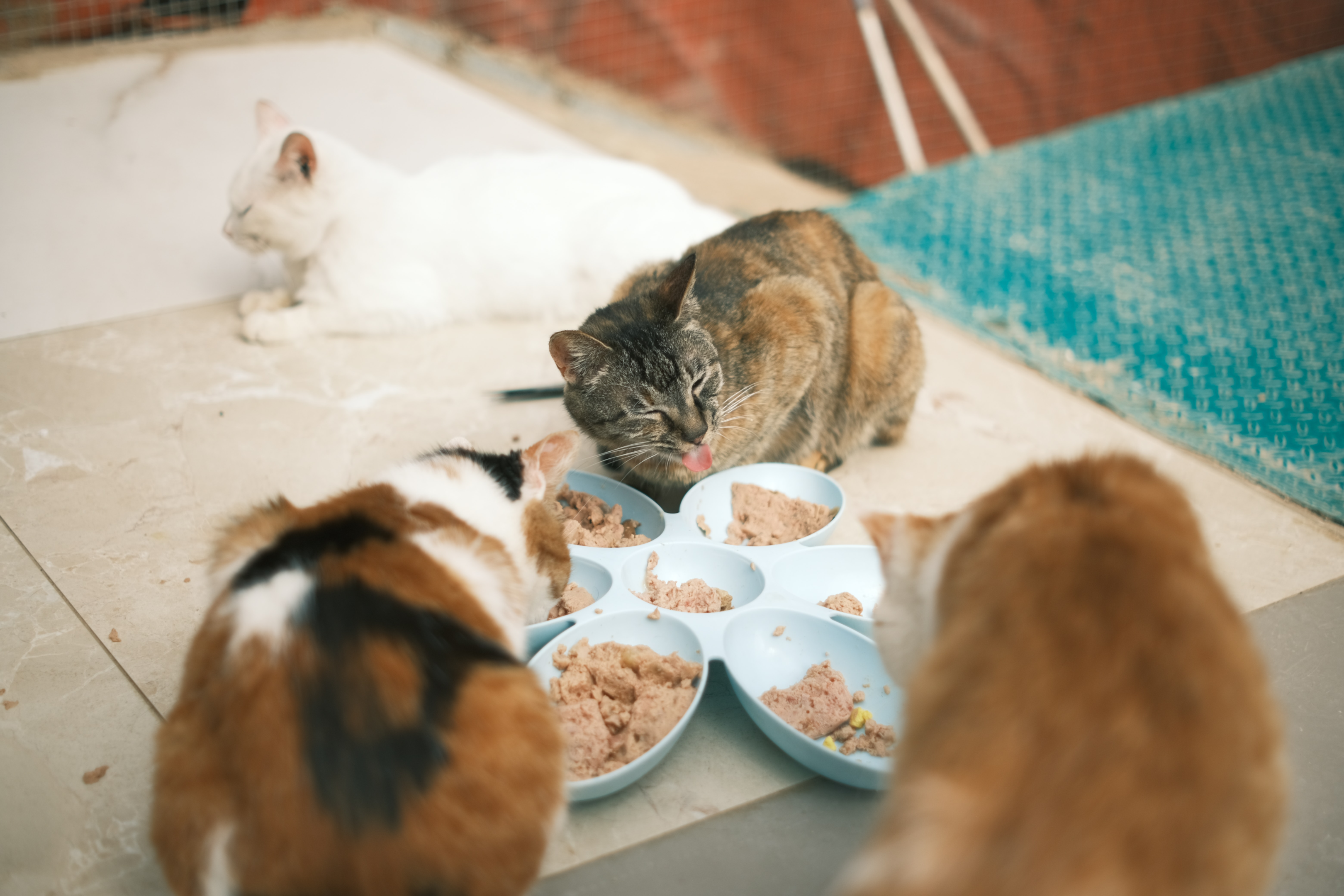
Remember, the journey of nurturing your kitten’s health is an ongoing process. our kitten’s nutritional needs change as they grow older. Choose good quality cat food that meets the nutritional needs and provides a balanced diet for your beloved pet cat. Regular veterinary check-ups, proper hydration, and mindful observation of their weight and overall health will help you provide them with the care they deserve.
By prioritizing good nutrition and making informed choices, you are investing in your cat’s lifelong health, happiness, and companionship. Together, you can enjoy a mutually enriching bond that lasts for years to come.

